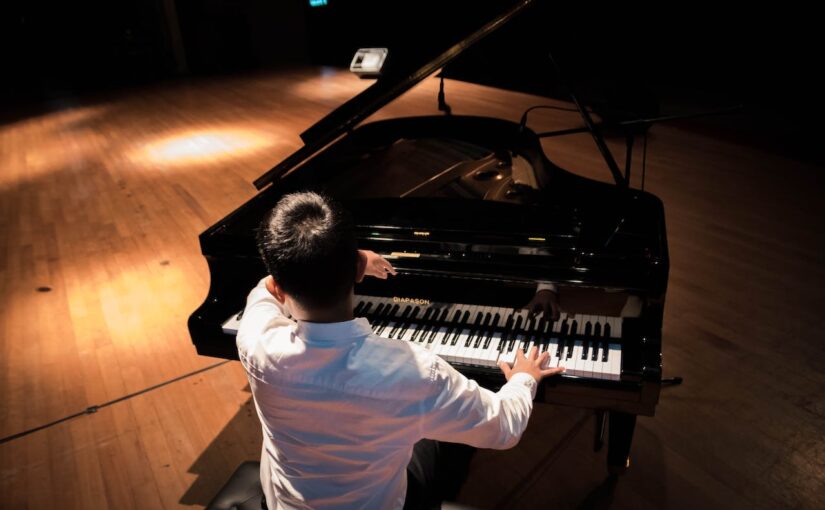Music theory forms the bedrock of understanding and interpreting the language of music. Traditionally taught through conventional instruments, the introduction of innovative instruments like The Fluid Piano has revolutionized the way music theory is comprehended and taught. This groundbreaking instrument not only embodies technological advancements but also serves as a dynamic tool to enhance music theory education, offering a transformative approach to learning.
A New Dimension to Music Theory Education
The Fluid Piano’s tuning flexibility presents an unparalleled opportunity to delve deeper into the intricacies of music theory. Its unique ability to modify the tuning of individual notes facilitates a hands-on approach to illustrate fundamental concepts like scales, intervals, harmonies, and tonal structures.
By adjusting the tuning to various scales and tonalities, educators can vividly demonstrate the theoretical underpinnings of different musical systems. This interactive experience allows students to grasp theoretical concepts experientially, enabling a deeper understanding of how theory translates into audible sound.
Illustrating Intervals and Harmonies
Teaching intervals and harmonies becomes an immersive experience with The Fluid Piano. The instrument’s adaptability enables educators to showcase various intervals—minor, major, augmented, diminished—and their distinctive sonic qualities by altering the tuning. Students can perceive the unique character of intervals firsthand, aiding in the comprehension of their relationships within harmonic progressions.
Moreover, illustrating harmonic structures, chord progressions, and even complex harmonies from different musical periods becomes more engaging and accessible. The Fluid Piano empowers educators to elucidate these concepts by allowing students to hear and feel the nuances of harmonic relationships in real-time.
Exploring Diverse Scales and Modes
One of the most remarkable features of The Fluid Piano is its capability to explore diverse scales and modes effortlessly. Teaching different scale structures, modalities, and non-traditional tonal systems becomes an enriching experience as students can explore various cultural and historical scales directly on the instrument.
Educators can demonstrate scales beyond the conventional major and minor, introducing students to exotic scales, microtonal systems, or modal scales from different musical traditions. This hands-on exploration fosters a broader understanding of musical diversity and cultivates a global perspective on scales and tonalities.
Fostering Creativity and Experimentation
The Fluid Piano serves as a catalyst for creativity and experimentation in music theory education. Its tuning flexibility encourages students to explore beyond the confines of standard Western tuning, allowing for exploration of alternative tuning systems, microtonal intervals, and experimental tonal structures.
This freedom to experiment nurtures students’ creativity, encouraging them to compose, improvise, and conceptualize music beyond conventional norms. It sparks curiosity, innovation, and a deeper appreciation for the boundless possibilities within music theory.
Empowering Future Musicians
By integrating The Fluid Piano into music theory education, educators empower future musicians with a holistic understanding of music theory. The hands-on experience offered by this innovative instrument transcends traditional pedagogy, fostering a profound connection between theoretical knowledge and practical application.
This transformative approach cultivates a generation of musicians who not only comprehend music theory but also possess the skills to creatively apply this knowledge, pushing the boundaries of musical expression.
Conclusion: Embracing Innovation in Music Education
The Fluid Piano’s role in music theory education transcends conventional teaching methods, offering a dynamic and immersive approach that amplifies the learning experience. Its adaptability serves as a powerful educational tool, providing students with a deeper comprehension of music theory and inspiring them to explore the limitless potential of musical creativity.
As educators continue to embrace innovative instruments like The Fluid Piano, they pave the way for a new era in music education—one that combines tradition with innovation, fostering a deeper understanding and appreciation for the intricacies of music theory. Through this transformative approach, students embark on a journey that not only enriches their theoretical knowledge but also nurtures their artistic vision, preparing them to become versatile and forward-thinking musicians.

